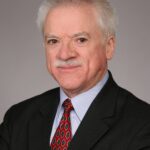With everyone from the Pope to the president spouting off these days about the alleged evil of purportedly growing wealth disparity in the world, it’s worth a few moments to remind ourselves – and to help educate others – about what wealth actually means. Let’s start with what it is not.
Wealth is not the same as money, which as Steve Forbes frequently points out is simply a medium of exchange. Instead of my having to trade legal services for goats, which I then trade for chickens, which I then trade for vegetables, which I then cook and eat, I can instead receive a universally accepted medium of exchange called money, in the amount of the value of the service I have provided. I can then spend it on goat meat or chicken or vegetables or anything else of value equal to the services I have provided. Money is simply a shortcut that eliminates a lot of otherwise complicated transaction costs.
Nor should wealth be confused with income. The spendthrift through whose pockets millions of dollars flow but who spends them recklessly and accumulates nothing has little wealth, and the heir or heiress who lives in a mansion with servants but has no job may have great wealth but little income.
Wealth is also not the same as simply land or gold or other natural resources, which are useless if one does not trade or develop them. An unplanted acre of ground on which no house is built, no well sunk nor drilled, no crops planted, or no cattle or sheep grazed is worth very little. All the grains of sand in the world were not worth much until humans learned to build roads and glass and computer chips from them. Even gold has no value except for the goods and services for which it can be exchanged or the uses to which it can be put: crowns or inlays for teeth, decorative uses such as jewelry, or electrical connections in microelectronics or radio equipment.
Putting aside spiritual wealth and personal health (the value of which are incalculable and cannot be exchanged with others) material wealth is simply the accumulation of added value, nothing more, nothing less. Any time you are adding value by providing goods or services or discovering new uses for existing resources, you are creating wealth.
Unlike matter or energy, therefore, wealth can be both created and destroyed. When people discover new uses for natural resources and build businesses around them, then they have created wealth. When misguided government policies cause the stock market or the housing market to crash or hyperinflation to set in, on the other hand, then they have destroyed or diminished wealth.
Once one properly understands wealth, it makes absolutely no sense for governments, churches, or other institutions to think they can make the world or the country better off by confiscating wealth from some people and giving it to others – especially after taking pieces of it for themselves. They are simply redistributing wealth, at both direct and indirect cost.
Directly, redistribution imposes obvious transaction costs, whether through the administrative costs of transferring funds or the logistical costs of shipping commodities overseas as part of “foreign aid.”
Indirectly, third-party redistribution of wealth diminishes wealth in the long run by discouraging its production in the first place. Who, after all, is inclined to work harder than he has to if he is not allowed to keep the fruits of his labor?
A decent society will always take care of its least fortunate, but mission-oriented civic organizations and individuals generally do a better and more cost-effective job of that than hierarchical organizations spending other people’s money.
So whether it’s the president or the Pope, be wary when anyone starts decrying the “inequality” of wealth in the world.
Chances are, they’re coming after yours.



